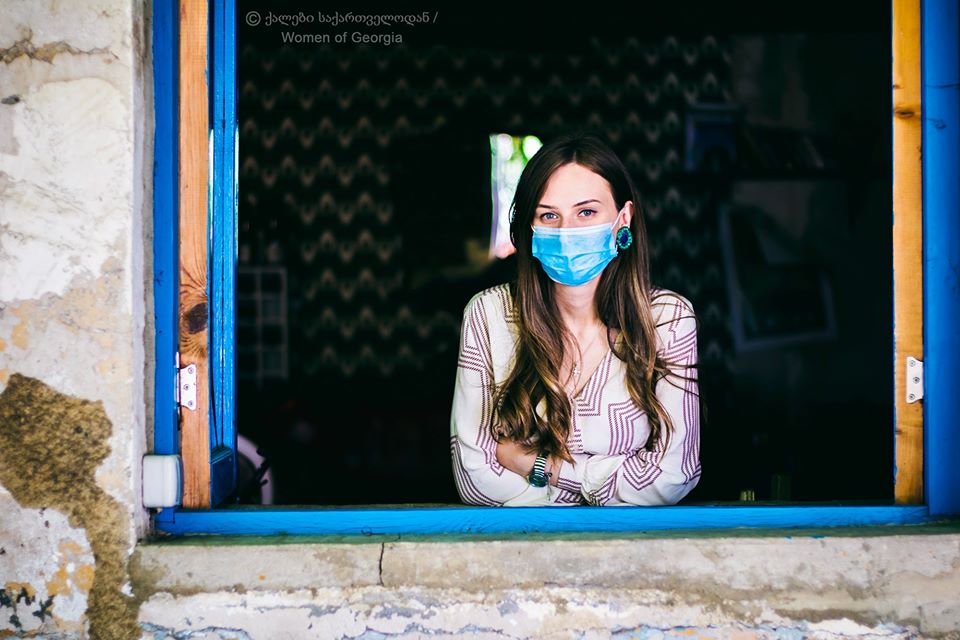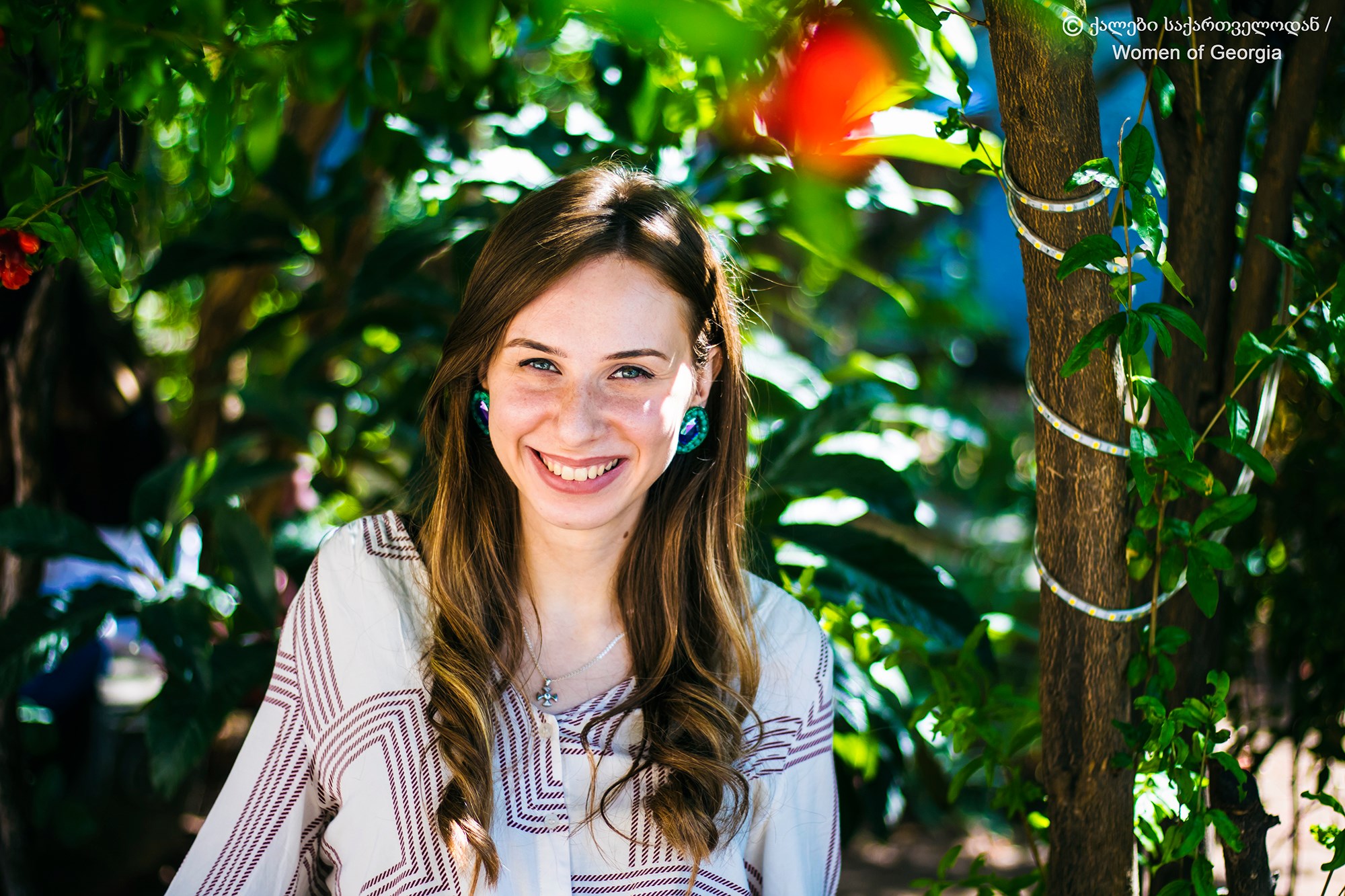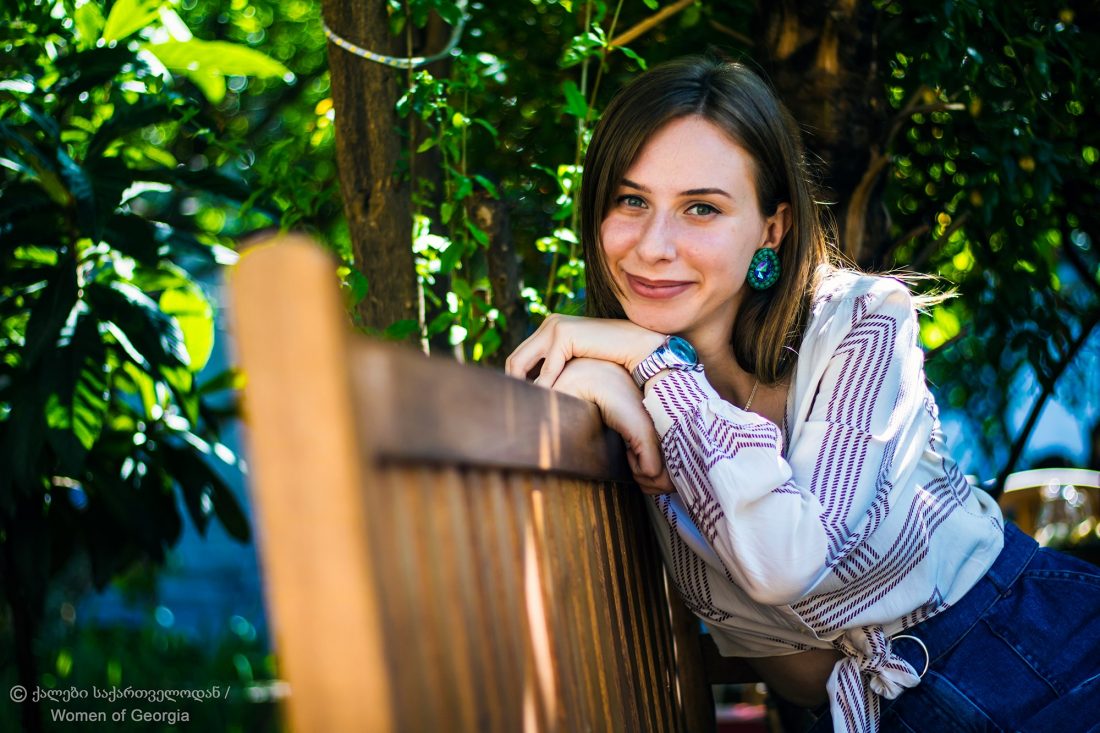Tako Iluridze, 24 years old, Gori
With the scholarship from the International Education Center, in September I went to Italy to study for my master’s degree. I’ve been learning Italian from the first day since I arrived there. There were American students in the group with me, who, unlike me, we’re only staying in Rome for 6 months and therefore they traveled a lot. When the pandemic started, they first went to Milan and from there, to the famous Venice Film Festival, which wasn’t canceled from the beginning and was taking place for the first three days. The spread of the pandemic in Italy probably mostly comes from this festival, because there were a lot of people gathered together. When they came to class on Monday, one of the girls was coughing hard. I even asked if she saw a doctor. She answered that if she had Corona, she would have been dead by then and that there was nothing to worry about. In the middle of the lecture, this girl became so sick that she couldn’t even breathe, she started crying and left the classroom. It turned out that the next evening the US government took its citizens back to the country, including this girl. The virus was soon confirmed there. After 4 days, I had a fever and my throat was also aching. I wasn’t even sure if it was really pain or just my imagination. I knew back then that in case of Corona, the temperature should have been high and I only had 37.2 degrees. Therefore, at first, I didn’t consider it a threat. But where I was, there were a lot of students living and I was still scared that I could give it to somebody. So, I tried not to meet anyone and was always using a face mask. When the temperature reached 38 degrees, I called my university coordinator and described my symptoms. Ambulance told him he shouldn’t even have called if there wasn’t hard coughing or difficulty breathing. I’d had a fever before as well, but now I couldn’t even stand up. I realized something was wrong and didn’t stop until I got help. I called the ambulance again and told them I wanted to be checked. They refused again. Then I remembered about the embassy, called them and only after that they took me to the hospital. The test was positive. At first, I feared someone could be infected from me and I started remembering all the people I met in those days. I wrote down a list of everybody I’ve had contact with so that I didn’t forget anyone and I could warn everyone. In the next days, I began to ask them about their health. Luckily, they checked all of my contacts and it turned out, that nobody got infected from me.
I was taken to a huge hospital in Rome. I was thinking it was as big as Tbilisi. There were only 12 patients including me at the time because the pandemic hadn’t peaked yet in Milan. But I saw that the number was growing every day. So, I often wondered, what if doctors couldn’t come to me physically. I was alone in the chamber and after three days I realized that the flow of patients had increased so much, that I was taken to another chamber with the second patient. After I left, the situation got out of control, nobody knew how many patients were in one chamber, because they physically didn’t have enough places.
 There was one patient lying in the chamber next to me. I had never seen him but could hear his coughing. I can never describe the sounds he made. I thought, one day his lungs would have to be replaced. He probably couldn’t stand the suffering anymore and I often heard him crying or screaming in the middle of the night. One day I found out that his voice had stopped. It scared me so much. I asked myself – did he die? Then I hoped, that maybe, like me, he would have been taken elsewhere. I still don’t know what really happened. There were a lot of stories like this one. The doctor’s answers were completely hopeless. They avoided giving us a guarantee for life or health.
There was one patient lying in the chamber next to me. I had never seen him but could hear his coughing. I can never describe the sounds he made. I thought, one day his lungs would have to be replaced. He probably couldn’t stand the suffering anymore and I often heard him crying or screaming in the middle of the night. One day I found out that his voice had stopped. It scared me so much. I asked myself – did he die? Then I hoped, that maybe, like me, he would have been taken elsewhere. I still don’t know what really happened. There were a lot of stories like this one. The doctor’s answers were completely hopeless. They avoided giving us a guarantee for life or health.
I really didn’t expect so much attention from the embassy. Thanks to them, I didn’t feel alone, away from my family. They brought me everything I needed, including Georgian books, that said ‘’we are with you’’. I really thought they were my friends. I needed that emotional support because back then no one knew anything about the disease. When I asked them at the hospital, what was the danger, or if it was dangerous at my age, they told me, that they didn’t know anything neither and I had to wait. Eventually, most stressful was this uncertainty. I kept thinking that if things turned worse, no one would be able to help me in the hospital and I would be left completely alone. I still don’t know how I managed to stay psychologically strong. I was trying to calm down everyone – my friends and family members.
In the end, the ambassador personally came to the hospital and took me home himself. If I hadn’t seen these attitudes and support with my own eyes, I probably wouldn’t have believed someone else. I arrived in Georgia with their help when only special flights were available and I really needed to return home. So, when there was a meeting with the Prime Minister with the invitation of the Ministry of Foreign Affairs, I expressed my sincere gratitude there. My three-minute speech got responses on the social network, people were cursing and swearing in such words that I couldn’t believe it. They wrote, that the government had paid me, that they wrote the thank-you note for me and that I should be ashamed to do an act like this. It was my first encounter with publicity, I had never experienced such attitudes before. I remember the first time I read hundreds of aggressive comments, most of which were comments from fake Facebook profiles, I was still in the hospital. Apparently, I became emotional and cried a lot. After the meeting with the Prime Minister, when the new wave broke, there were so many absurd accusations, that I was already laughing about it. For example, people said, that government was preparing me to become the new Minister of Finance and that was the reason for public speech. In fact, I wrote about it in public, because I wanted to encourage people who had the virus and were depressed. There were a lot of people writing to me from different countries. They thanked me for talking about my diagnosis in public. My recovery has calmed these people down.
 This story somehow took me out of my comfort zone. I realized that you can’t please everyone and that’s fine. I rethought many things, I realized that the greatest power is support. When the cluster of Marneuli appeared, I saw some xenophobic comments and I was very angry. I expressed my support and wrote a post about how I had never felt in Italy that I was from a foreign country and was a threat to them. Ethnically Azerbaijanis are full-fledged citizens of this country and that aggression I heard in those days is absolutely not right. The fact is, Corona doesn’t recognize borders or ethnicity.
This story somehow took me out of my comfort zone. I realized that you can’t please everyone and that’s fine. I rethought many things, I realized that the greatest power is support. When the cluster of Marneuli appeared, I saw some xenophobic comments and I was very angry. I expressed my support and wrote a post about how I had never felt in Italy that I was from a foreign country and was a threat to them. Ethnically Azerbaijanis are full-fledged citizens of this country and that aggression I heard in those days is absolutely not right. The fact is, Corona doesn’t recognize borders or ethnicity.
As for my plans, I decided to return to Italy in September and complete the master’s program that led me to Rome. It’s a two-year program and I study finance. I have a bachelor’s degree from the Tbilisi State University Faculty of economics and I would like to say that education systems between Europe and Georgia are completely different. Studying economics and finance are very different. So, I really have to learn again what students there have already learned. Most of our universities don’t even provide basic knowledge. Studies in Georgia are not based on real-world practice and I need to put double the effort. After graduation, I’m going to return and work in Georgia. Before I go back to Italy, If I had an opportunity, I would love to be involved in the new economic recovery program that is just now implemented by the government.
Author: Ida Bakhturidze
Photographer: Nino Baidauri
Translation: Mariam Kajrishvili

